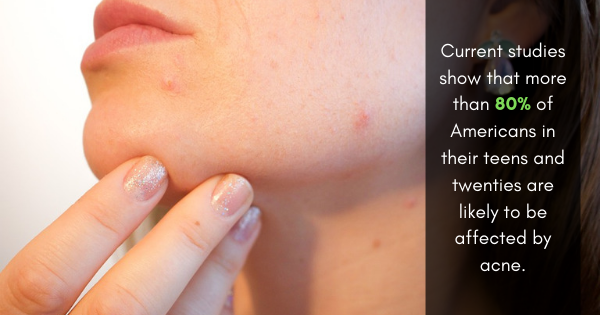
Health is Skin Deep: 5 Things Your Skin is Telling You About Your Body
Your skin can reveal more about your overall state of health than you might think.
A wise man once said that the eyes are the window to the soul — but we think that’s only part of the story. As dermatology professionals, we propose that our skin can tell us even more about the inner workings of our bodies. More than just signaling when we’ve entered menopause or stayed in the sun too long, our skin also provides a window into the general state of our health and wellbeing.
These are five things that your skin may be telling you, and how you can read the signs.
1. You Need to Reduce Your Junk Food Intake
A poor diet — one that is heavy in refined carbohydrates, sugar, and trans fats — can cause inflammation, which damages collagen and makes you look older. Avoid candy, non-organic milk, potato chips, and butter for a smoother complexion (and an overall healthier lifestyle).
2. The Climate is Changing (Your Skin)
Weather extremes can have a major impact on your skin. Cold temperatures strip moisture from the skin and dry it out, while hot temperatures can lead to excess perspiration, and in turn leave you prone to breakouts. In any temperature, it’s extremely important to be aware of the sun (even in the dead of winter!) and to apply sunscreen every day. UV rays can damage your skin whether it’s hot outside or cold, so be vigilant about sun protection throughout the year.
3. Your Hormones are Out of Balance
Hormones are transmitted through the body and directly to skin cells via your bloodstream. When you have an excess of hormones, they will attach to the skin cells and result in an outbreak of acne. Hormone imbalances can occur for a variety of reasons, including diet, stress, and blood sugar levels. The simplest way to address a hormone imbalance is to eat healthily, drink plenty of water, and minimize stress. However, because a hormone imbalance could be indicative of a more serious underlying medical issue, you should consult a dermatologist for a professional diagnosis.
4. You’re Not Drinking Enough H₂O
If you’re dehydrated, the volume of blood circulating through your body will be depleted — and this often leads to dry skin. Your skin can also become flushed if it isn’t evaporating moisture as it should be. Dehydration isn’t always obvious — if your skin feels dry or flushed, try drinking a glass or two of water before rushing to the dermatologist.
5. You Need More Sleep
It’s not just a myth that lack of sleep will result in dark circles under your eyes. When you don’t get a full night’s sleep, blood vessels under the skin of the eyes dilate, creating the appearance of dark circles. Lack of sleep can also cause fluids to leak out of the skin and produce “eye bags” — puffiness and swelling around the eyes. You can reduce this swelling by placing a cooled tea bag under your eyes, getting a dermatologist-recommended facial, using eye skin moisturizer, or just getting more sleep!
If you’re not sure what your skin is telling you, visit a licensed dermatologist today.









No Comments
Sorry, the comment form is closed at this time.